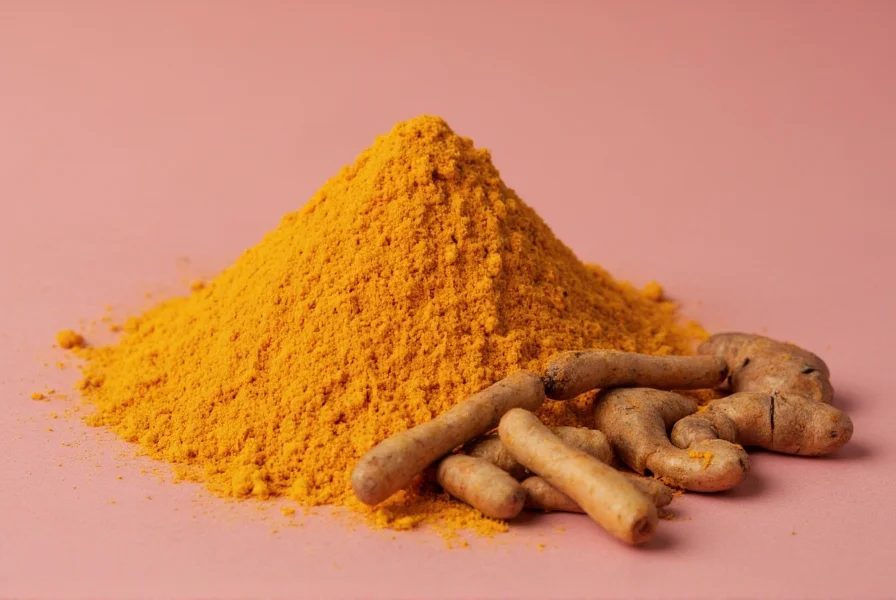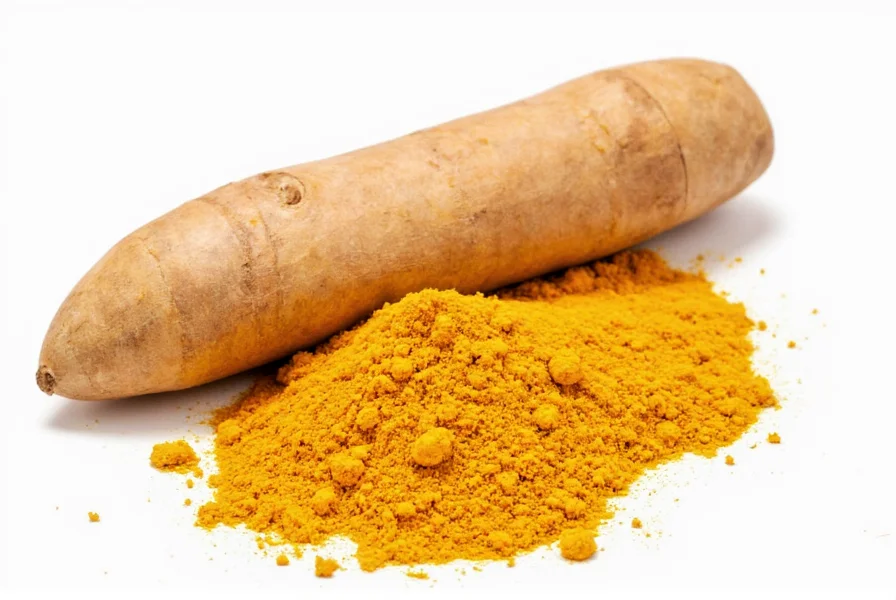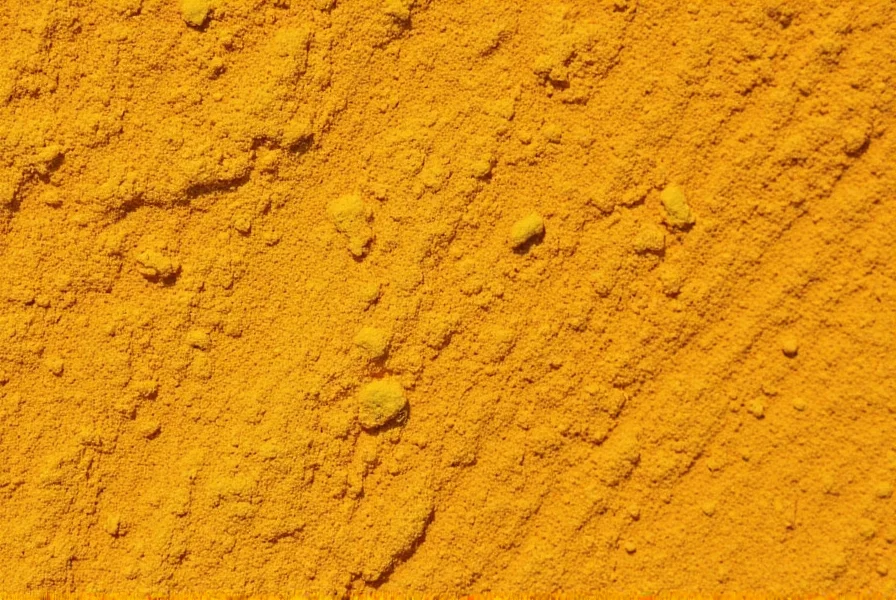Curcumin, the primary bioactive compound in turmeric, has captured significant scientific interest for its potential effects on liver health. As research continues to evolve, understanding the nuanced relationship between this golden spice and liver function becomes increasingly important for health-conscious individuals. Unlike many wellness trends that lack scientific backing, turmeric's connection to liver health has been examined in numerous laboratory and clinical studies, though the evidence landscape requires careful interpretation.
The Science Behind Turmeric and Liver Function
Curcumin demonstrates several biological properties relevant to liver health. Its potent anti-inflammatory effects may help reduce hepatic inflammation, a common factor in many liver conditions. Additionally, curcumin functions as a powerful antioxidant, potentially protecting liver cells from oxidative damage caused by free radicals. Research published in the World Journal of Gastroenterology suggests curcumin may influence liver fat metabolism, showing promise for managing non-alcoholic fatty liver disease (NAFLD).
Multiple studies have investigated turmeric's impact on liver enzymes, which serve as important markers of liver function. Elevated levels of enzymes like ALT and AST often indicate liver stress or damage. Some clinical trials report modest reductions in these enzyme levels among participants taking curcumin supplements, suggesting potential protective effects. However, these findings require replication in larger, longer-term human studies to establish definitive conclusions about turmeric liver support.

Evidence for Turmeric Benefits in Liver Conditions
Non-alcoholic fatty liver disease represents one of the most promising areas for turmeric research. A 2020 systematic review in Nutrients analyzed multiple clinical trials and found that curcumin supplementation significantly reduced liver fat content and improved liver enzyme levels in NAFLD patients. The researchers noted that while results were encouraging, most studies had small sample sizes and relatively short durations.
For individuals concerned about liver inflammation, turmeric's anti-inflammatory properties may offer some benefits. Chronic inflammation plays a key role in the progression of liver diseases from simple fatty liver to more serious conditions like fibrosis. Animal studies consistently show curcumin's ability to reduce inflammatory markers in liver tissue, though human evidence remains less robust.
| Liver Condition | Research Status | Potential Turmeric Benefit |
|---|---|---|
| Non-alcoholic fatty liver disease | Multiple human trials | May reduce liver fat and inflammation |
| Liver fibrosis | Primarily animal studies | Potential anti-fibrotic effects |
| Alcoholic liver disease | Limited human research | Theoretical antioxidant protection |
| Viral hepatitis | Minimal direct evidence | Not established as treatment |
Understanding Potential Risks of Turmeric for Liver
While turmeric shows potential benefits, it's crucial to acknowledge possible risks, particularly with concentrated supplements. The Journal of Hepatology has documented rare cases of herb-induced liver injury associated with turmeric supplements. These instances appear uncommon but highlight why quality control matters when considering turmeric for liver health.
Several factors contribute to potential liver concerns with turmeric supplements:
- Product quality issues: Some supplements contain additives or contaminants that may affect liver function
- Dosage considerations: High doses used in supplements far exceed culinary amounts
- Individual susceptibility: Certain people may have genetic variations affecting how they process curcumin
- Medication interactions: Turmeric may interact with drugs metabolized by the liver
Research on turmeric and liver safety suggests that dietary consumption through food is generally safe for most people. The concerns primarily relate to concentrated supplement forms. Individuals with pre-existing liver conditions should consult healthcare providers before starting high-dose turmeric supplementation.
Practical Guidance for Turmeric Consumption
For those interested in turmeric's potential liver benefits, understanding appropriate consumption methods matters. Culinary use of turmeric as a spice in cooking represents the safest approach. Adding black pepper (which contains piperine) can significantly enhance curcumin absorption, potentially increasing its bioavailability by up to 2,000% according to research in Planta Medica.
When considering turmeric supplements for liver health, several evidence-based recommendations apply:
- Choose products with third-party testing for quality and purity
- Look for formulations that enhance bioavailability (like those with piperine or phospholipids)
- Start with lower doses and monitor for any adverse effects
- Consult with a healthcare provider, especially if you have liver conditions
- Be aware of potential interactions with blood thinners and diabetes medications

Current Research Limitations and Future Directions
Despite promising findings, significant limitations exist in the current body of research on turmeric and liver health. Most human studies have small sample sizes, short durations, and methodological weaknesses. The optimal dosage, formulation, and duration of use for specific liver conditions remain unclear. Additionally, research on turmeric's effects on advanced liver diseases like cirrhosis is extremely limited.
Future research needs include larger randomized controlled trials with diverse populations, longer follow-up periods, and standardized curcumin formulations. Scientists are also investigating whether specific genetic markers might predict who benefits most from turmeric supplementation for liver health. Until more definitive evidence emerges, turmeric should be viewed as a potential complementary approach rather than a primary treatment for liver conditions.
Conclusion: A Balanced Perspective on Turmeric Liver Benefits
The relationship between turmeric and liver health represents a promising but complex area of research. Current evidence suggests potential benefits, particularly for early-stage non-alcoholic fatty liver disease, but falls short of establishing turmeric as a definitive treatment. Dietary turmeric appears safe for most people, while supplement use requires more caution and medical consultation, especially for those with existing liver conditions.
As with any natural compound studied for health benefits, maintaining realistic expectations matters. Turmeric shows potential as part of a comprehensive liver health strategy that includes proper nutrition, regular exercise, and appropriate medical care when needed. Ongoing research will continue to clarify turmeric's role in liver health, but for now, evidence-based caution and professional medical guidance remain essential.
Frequently Asked Questions
Can turmeric reverse fatty liver disease?
Current research suggests turmeric may help improve markers of non-alcoholic fatty liver disease (NAFLD), but cannot reverse established fatty liver disease alone. Studies show curcumin supplementation may reduce liver fat content and inflammation in NAFLD patients, but these effects appear modest. Comprehensive management of fatty liver requires dietary changes, weight management, and regular exercise alongside any potential supplement use.
How much turmeric should I take for liver health?
There's no established therapeutic dose of turmeric specifically for liver health. Culinary use (about 1-3 grams of turmeric powder daily) is generally considered safe. For supplements, research studies on liver health typically use 500-2,000 mg of curcumin daily, often in divided doses with piperine to enhance absorption. Always consult a healthcare provider before starting supplements, especially if you have liver conditions or take medications.
Can turmeric supplements damage your liver?
While rare, there have been documented cases of turmeric supplements causing liver injury in susceptible individuals. The Journal of Hepatology reports these instances appear uncommon but highlight the importance of quality control in supplements. Most cases involve high-dose supplements rather than culinary turmeric. People with pre-existing liver conditions should exercise caution and consult healthcare providers before using turmeric supplements.
Does turmeric lower liver enzymes?
Some clinical studies show turmeric (curcumin) supplementation may modestly reduce elevated liver enzymes like ALT and AST in people with non-alcoholic fatty liver disease. A 2020 review in Nutrients found significant reductions in these markers among NAFLD patients taking curcumin. However, these effects appear variable between individuals, and turmeric shouldn't replace conventional treatments for significantly elevated liver enzymes without medical supervision.
Is turmeric safe for people with cirrhosis?
People with cirrhosis should consult their healthcare provider before using turmeric supplements. While culinary amounts are generally safe, concentrated supplements may pose risks due to potential effects on blood clotting and medication interactions. Cirrhosis significantly alters liver metabolism, making individuals more susceptible to supplement-related complications. Research specifically examining turmeric's effects on cirrhosis is extremely limited, so medical guidance is essential.











 浙公网安备
33010002000092号
浙公网安备
33010002000092号 浙B2-20120091-4
浙B2-20120091-4